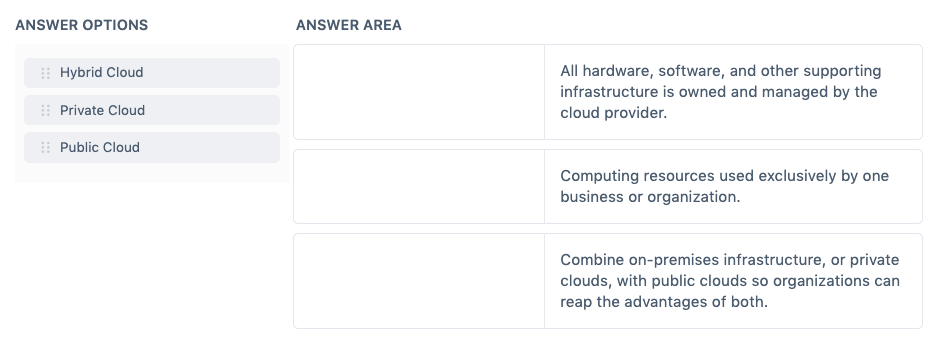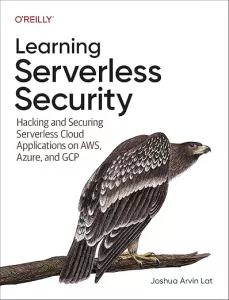Last updated on July 3, 2023
Azure Cloud Architecture Models Cheat Sheet
- Cloud computing is the delivery of services over the Internet that helps you reduce your operating costs, run your infrastructure efficiently, and scale as business requirements change.
- Benefits of cloud computing:
- Cost – eliminates capital expense.
- Global scale – ability to scale elastically.
- Performance – computing hardware is always upgraded to the latest generation.
- Security – data stored in the cloud has a broad set of policies, technologies, and controls.
- Speed – computing resources can be provisioned in minutes.
- Productivity – enables the customer to focus on business requirements instead of setting up on-site datacenters.
- Reliability – availability of your resources at all times.
- Benefits of cloud computing:
- Three deployment methods of cloud computing: Public vs Private vs Hybrid.
- The model you choose for cloud deployment depends on your budget, security, scalability, and maintenance needs.
Public Cloud
- Focus on maintaining your applications without having to worry about purchasing, managing, or maintaining the hardware on which it runs.
- You can use multiple public cloud providers of varying scale.
|
Advantages |
Disadvantages |
|
High scalability/agility |
Specific security requirements |
|
Pay-as-you-go pricing |
Government policies, industry standards, or legal requirements |
|
You are not responsible for the updates and maintenance of the hardware. |
You don’t own the hardware or services and you also can’t manage them as you may want to. |
|
The required technical knowledge is minimal. |
Maintaining a legacy application might be hard to meet |
Private Cloud
- A dedicated on-premises datacenter configured to be a cloud environment that provides users in your organization with self-service access to compute resources.
- You are responsible for the purchase and maintenance of the hardware and software services.
- You can use a private cloud when an organization has data that cannot be put in the public cloud, perhaps for legal reasons.
|
Advantages |
Disadvantages |
|
Any scenario or legacy application configuration is supported. |
CapEx involved – principal cost is the procurement of the equipment. |
|
You have control (and responsibility) over security |
To scale, you must buy, install, and set up new hardware |
|
Compliance, or security requirements in your organization |
Private clouds require IT skills and expertise |
Hybrid Cloud
- Data and applications can move between private and public clouds.
- When there is a spike in demand in your private cloud, you can “burst through” to the public cloud for additional computing resources.
|
Advantages |
Disadvantages |
|
Maintain a private infrastructure for sensitive assets. |
More expensive than selecting one deployment model since it involves some CapEx cost upfront |
|
Take advantage of the resources in the public cloud when needed. |
It can be more complicated to set up and manage |
|
With the ability to scale to the public cloud, you pay for extra computing power only when needed. |
|
|
Allows you to use your own equipment to meet the security and compliance requirements in your organization. |
Validate Your Knowledge
Question 1
Question Type: Matrix Sorting Choice
Match the cloud models to their correct definitions.
For more Azure practice exam questions with detailed explanations, check out the Tutorials Dojo Portal:
Azure Cloud Architecture Models Cheat Sheet References:
https://azure.microsoft.com/en-us/overview/what-are-private-public-hybrid-clouds/
https://docs.microsoft.com/en-us/learn/modules/principles-cloud-computing/4-cloud-deployment-models




















